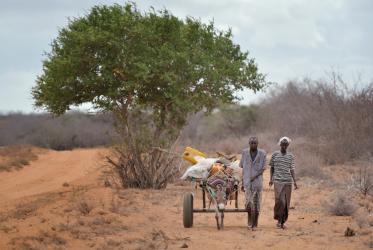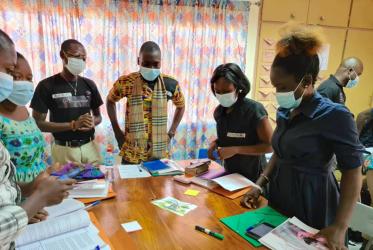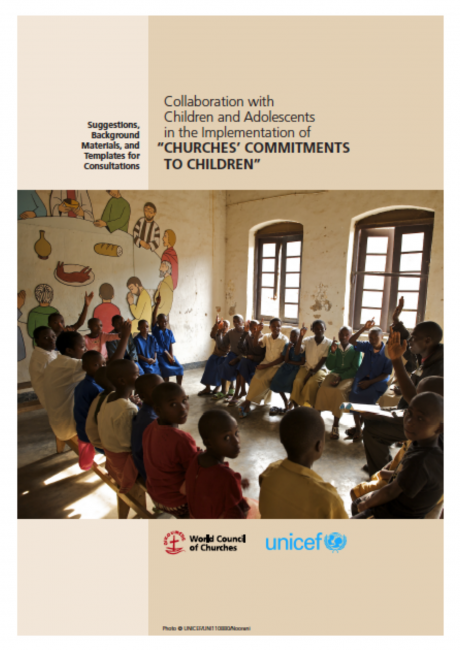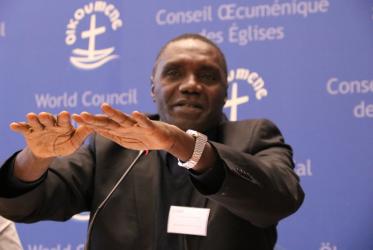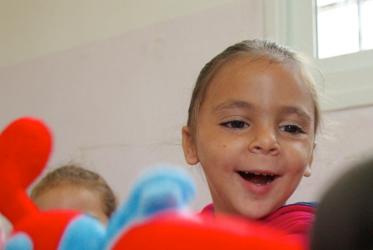Displaying 1 - 20 of 34
31 January 2024
"Out of the Shadows" toolkit now available in French and Spanish
20 January 2022
Collaboration with Children and Adolescents in the Implementation of “Churches’ Commitments to Children"
Suggestions, Background Materials, and Templates for Consultations
25 October 2020
Agreement works toward food security in South Sudan
23 February 2019
WCC to ring with children’s voices across the world
16 November 2018
Seven weeks of Lent highlight water crisis in Africa
01 March 2017
Tveit offers input at religion and development meeting
03 October 2016

